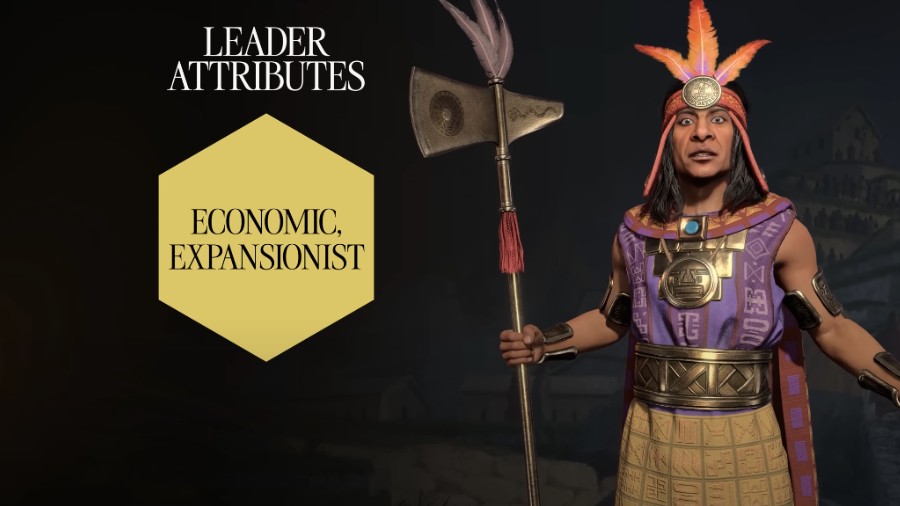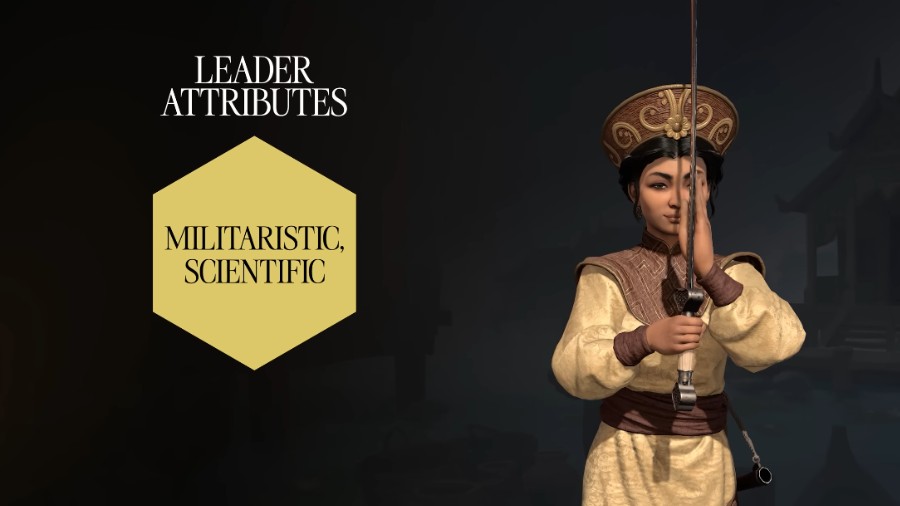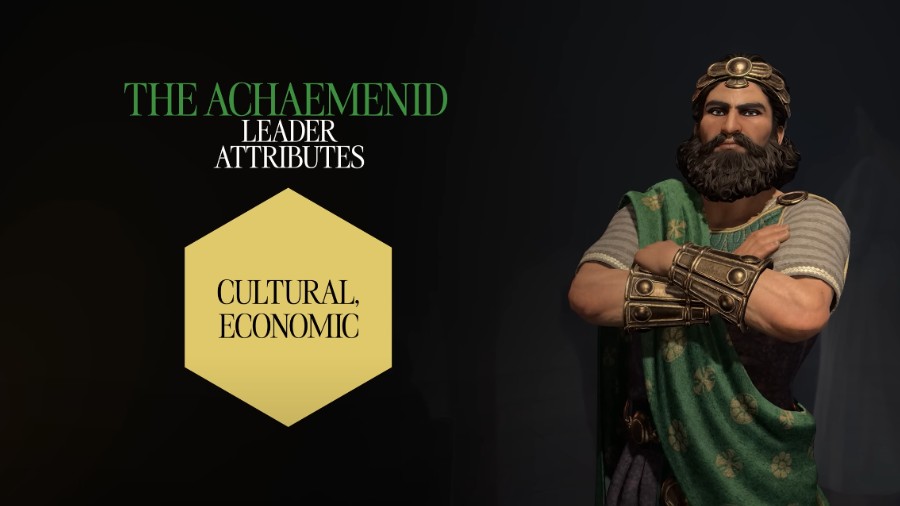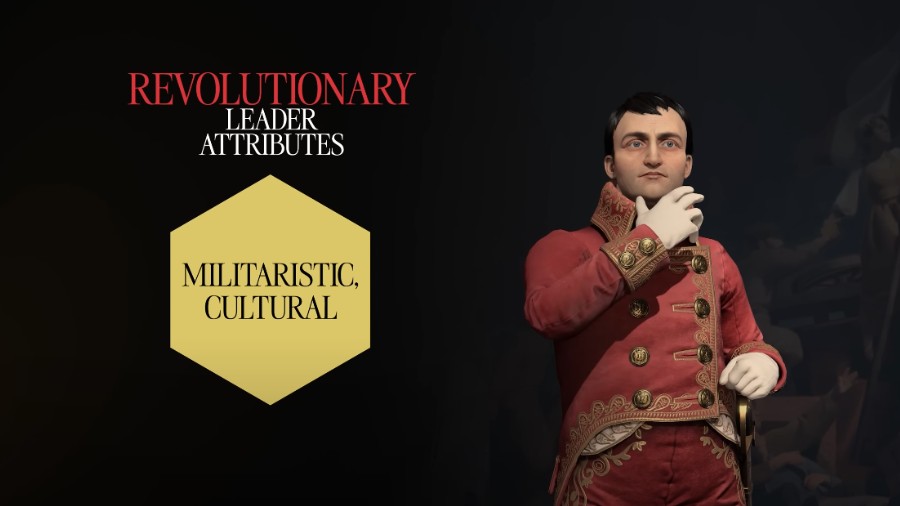The Civilization 7 Leaders tier list outlines the best leaders that you can use in the game. Each leader is unique, with different stats, bonuses, and gameplay. The main purpose of this Civilization 7 tier list is to give you an idea of what each leader is good for and how well he compares to other leaders. Keep in mind that each leader is different and has a different playstyle.
Even if we ranked some leader as the best, that does not mean that you should play that leader. The problem is that even if the leader is extremely good, there is a chance that you will not like his playstyle. So, what we recommend is that you test each leader on your own, read what bonuses they have, and learn how to play.
It is better to play a leader that is not that great but you like its playstyle compared to playing the best leader that has a terrible playstyle. Feel free to use this tier list, but at the end of the day, it is all about you and what leader you want to play.
- Tier S (Overpowered)
- Tier A (Balanced)
- Tier B (Slightly Underpowered)
- Tier C (Underpowered)
- Tier D (The Worst)
| Leader | Tier Rating |
|---|---|
| Confucius | S |
| Ashoka (World Conqueror) | S |
| Augustus | S |
| Machiavelli | S |
| Xerxes (King of Kings) | S |
| Hatshepsut | A |
| Himiko (High Shaman) | A |
| Ibn Battuta | A |
| Isabella | A |
| Benjamin Franklin | A |
| Catherine the Great | A |
| Charlemagne | A |
| Jose Rizal | A |
| Harriet Tubman | A |
| Ashoka (World Renouncer) | B |
| Amina | B |
| Friedrich (Oblique) | B |
| Himiko (Queen of Wa) | B |
| Napoleon (Emperor) | B |
| Lafayette | B |
| Pachacuti | B |
| Trung Trac | B |
| Xerxes (Achaemenid) | B |
| Napoleon (Revolutionary) | C |
| Friedrich (Baroque) | C |
| Tecumseh | C |
S-Tier Leaders
Confucius

- +25% growth in all cities → rapid population increases.
- +2 Science per Specialist → excellent for a Science-focused strategy.
- Straightforward synergy between city growth and Specialist usage.
- Specialist-centric bonuses require managing Happiness to support larger populations.
- Prefers bigger cities; smaller empires may not leverage the growth bonus as effectively.
Ashoka (World Conqueror)

- Declaring a formal war triggers a Celebration (boosts production and grants +10 combat strength).
- +1 production for every fixed excess Happiness → easy to scale production in well-managed cities.
- +10% production in conquered cities (settlements not founded by the player).
- War-focused agendas and bonuses can invite retaliations or diplomatic penalties.
- Requires careful Happiness management to maintain production bonuses.
Augustus

- +2 production in the Capital for every town → stacking production as you expand.
- +50% gold toward purchasing buildings in towns → quickly develop new or smaller settlements.
- Can purchase culture buildings in towns → frees your main production queue for other needs.
- Requires good economic management; buying buildings demands steady gold income.
- Bonuses shine most once you have multiple towns (later-game payoff).
Machiavelli

- +3 influence per age → extra Diplomatic leverage.
- Gains gold whether diplomatic proposals are accepted or rejected.
- Ignores relationship requirements for declaring formal wars → easier to pivot between war and diplomacy.
- Can levy troops from city-states without being Suzerain.
- Influence-hungry playstyle: you’ll spend a lot of Influence on endeavors, war pacts, and city-state levies.
- “Spider” agenda can cause frequent alliances or break them, depending on how AIs handle wars.
Xerxes (King of Kings)

- +3 combat strength for units attacking in neutral/enemy territory → strong offensives.
- Gain 100 Culture and 100 Gold per age upon first capture of a settlement → excellent conquest snowball.
- +10% gold in all settlements, doubled in ones you did not found.
- +1 settlement limit per age → expand faster without heavy penalties.
- War-driven approach can cause continuous conflicts and possible diplomatic isolation.
- Must keep capturing or founding cities to reap the biggest benefits.
A-Tier Leaders
Hatshepsut

- +1 culture for each imported resource → beneficial if you manage many trade routes.
- +15% production toward wonders/buildings in cities adjacent to navigable rivers.
- Good for cultural or wonder-focused playstyles.
- Map-dependent; you really want river adjacency to fully leverage her production bonus.
- Relies on trading partners for resource imports
Himiko (High Shaman)

- +2 Happiness per age on happiness buildings → stable, content empire.
- +50% production towards happiness buildings → quickly fix negative amenities.
- +20% culture, -10% science (doubled culture during Celebrations) → big culture bursts.
- Scientific slowdown can hurt if enemies surge ahead in military tech.
- Celebration reliance means you must sustain high Happiness.
Ibn Battuta

- Multiple attribute points after the first civic in every age → flexible for any victory path.
- Increased sight for all units → better early exploration, easier planning for expansion.
- Trade Maps endeavor → gradually see other leaders’ explored areas.
- Securing lots of attribute points demands consistent civic progress.
- Needs active exploration and trade/endeavor focus to outpace other civs.
Isabella

- Gain 300 gold discovering a natural wonder (+600 if far away).
- +100% tile yields from natural wonders → huge resource spike if you settle them.
- +50% gold toward purchasing naval units, -1 gold maintenance for navies.
- Highly reliant on finding/controlling natural wonders (which may be random).
- Naval bias can be weaker on low-water or Pangaea-like maps.
Benjamin Franklin

- +1 science per age on production buildings → synergy between production and research.
- +50% production to build production buildings → ramp up your infrastructure quickly.
- +1 science per age from active endeavors you start or support → flexible diplomatic approach.
- Requires balancing endeavors and building specialization to get the full advantage.
- Diplomatic or trade mishaps can limit how many endeavors you can juggle.
Catherine the Great

- +2 culture per age on displayed great works → high-late game cultural yield.
- Buildings with great work slots gain an extra slot → quickly stack great works.
- Cities in tundra gain science equal to 25% of their culture per turn → synergy of culture + science.
- Tundra start is helpful, but can also be resource-poor if unlucky.
- Focus on great works can become one-dimensional if you neglect other yields.
Charlemagne

- Military & science buildings get happiness adjacency → easier to keep war-weary cities happy.
- +2 free cavalry units (once unlocked) every time you trigger a Celebration.
- +5 combat strength for cavalry units during a Celebration.
- Requires repeated Celebrations for maximum effect → must ensure strong Happiness management.
- Cavalry-heavy approach might falter vs. advanced ranged or naval foes if not balanced.
Jose Rizal

- Extra culture & gold per age when you gain rewards from a narrative event → strong event chaining.
- Longer Celebrations (+50% duration) with more happiness.
- Additional narrative events for unique bonuses or storyline effects.
- Event-based bonus can vary from game to game (depends on how many events trigger).
- Celebration synergy still requires stable happiness levels.
Harriet Tubman

- +50% influence toward espionage → perfect for covert disruption or tech theft.
- Gain +5 war support when others declare war on you → strong defensive wars.
- Units ignore vegetation movement penalties → faster maneuvering in forest/jungle.
- Diplomatic conflicts are likely once espionage is discovered.
- Defensive approach for war support means you might wait to be attacked.
B-Tier Leaders
Ashoka (World Renouncer)

- +1 food in cities for each excess happiness beyond a threshold.
- +10% food in all settlements during a Celebration → quick population growth.
- All buildings gain a +1 happiness adjacency for improvements → synergy with big cities.
- Doesn’t excel in any one victory condition.
- Growth/happiness approach can be overshadowed by faster or more specialized civs.
Amina

- +1 resource capacity in cities → supports bigger demands for trade/units.
- +1 gold per age per assigned resource → economy grows as you secure more resources.
- +5 combat strength on plains/deserts → strong if you spawn or fight in these biomes.
- Map-dependent; requires ample plains/deserts for maximum militaristic impact.
- Resource-based gold bonus can be weaker if not enough resources are available.
Friedrich (Oblique)

- Commanders start with Merit Commendation → +1 command radius.
- Gain an infantry unit whenever you construct a science building → synergy between science and armies.
- Your science production must stay high or you’ll lag behind in both technology and free units.
- Combat success can hinge on how often you can push out science buildings.
Himiko (Queen of Wa)

- ‘Friend of Wei’ unique endeavor grants +25% science for you and an ally.
- +4 science per age for every leader you’re Friendly/Helpful with.
- Can support endeavors for free → saves Influence.
- Diplomacy reliant; if you fail to maintain alliances/friendships, your science bonus suffers.
- War-heavy maps or big rivalries will undercut your entire strategy.
Napoleon (Emperor)

- Unique “Continental System” sanction reduces a target’s trade route limit → cripples trade-dependent foes.
- +8 gold per age for every leader you’re unfriendly or hostile with → profitable aggression or grudges.
- Reject endeavors for free → saves Influence in tense diplomatic interactions.
- High chance of making enemies quickly.
- Lacks direct military buffs, so you must handle the inevitable retaliations carefully.
Lafayette

- ‘Reform’ unique endeavor → +1 social policy slot for you (and for the leader who supports it).
- Increased combat strength for every tradition in your government → powerful synergy with certain policy builds.
- Increased culture/happiness per age in settlements → even more in distant lands.
- Buffing others with Reform can backfire if you enable a strong rival.
- Requires juggling tradition/policy synergy to see big payoffs.
Pachacuti

- All buildings gain a food adjacency for mountains → big growth in mountainous regions.
- Specialists adjacent to mountains don’t cost happiness maintenance.
Fully reliant on nearby mountains; lacking them hurts your entire game plan.
Needs creative district placement to maximize adjacency.
Trung Trac

- +3 free promotions on your first army commander → very strong early military advantage.
- +20% commander experience for all subsequent leveling.
- +10% science in tropical cities, boosted further during your formal wars.
- Tropical bias can be map-dependent for maximum effect.
- Reliance on war declarations to trigger the bigger science bonus.
Xerxes (Achaemenid)

- +1 trade route limit with all other leaders → scale up global trade quickly.
- +50 culture and +100 gold per age when you create a trade route or road.
- +1 culture/gold per age on unique buildings/improvements → strong long-term economy.
- Relies heavily on trade route endeavors (which cost Influence).
- Some leaders can block or refuse trade → stalling your synergy.
C-Tier Leaders
Napoleon (Revolutionary)

- +1 movement for all land units → big advantage in warfare and map traversal.
- Defeating an enemy unit grants culture equal to 50% of that unit’s combat strength → can snowball if wars go well.
- Must remain in conflict to gain the culture bonus.
- War weariness can be harder to manage if fights drag on.
Friedrich (Baroque)

- Gain a great work upon capturing a settlement for the first time → culture spike via conquest.
- Gain an infantry unit when you construct a culture building → slow but steady army growth.
- Odd mix of conquest and culture.
- Lacks synergy for boosting production or science; can get outpaced by specialized civs.
Tecumseh

- +1 food and production per age per city-state you are Suzerain of → can stack nicely if city-states survive.
- +1 combat strength per city-state you are Suzerain of → potential for strong armies if many city-states exist.
- Highly reliant on city-states not getting conquered early.
- Diplomatic competition for suzerainty can be fierce; if you lose them, Tecumseh loses steam quickly.

